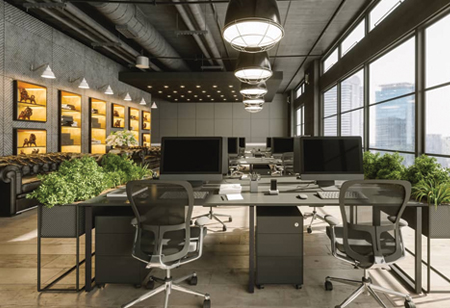
Article’s central premise throws light on, what are modern workspaces and how effective they are on final outcome and mental health. In addition, learn about how useful office cubicles are in today’s working environment. Especially, post-COVID, modern cubicles are proving to be good safe shields, safeguarding us from falling sick and getting infected. Not only this, you also get to know, what role cubicles are playing in providing privacy with professionalism.
Modern workspaces are designed to maximize productivity and facilitate connections with like-minded professionals. Workspace opens you up to new business opportunities while providing you with an environment that inspires, connects and motivates. Modern cubicles are providing designated and tailored experiences in an effective cum efficient way.
Redefine the way you work, intensify the work you do by sitting in various types of modernized boxes, as working in a cubicle is to sit in an open box and think out of the box. Remember creativity, innovation and change are on its par!
.jpg) Market Scenario
Market Scenario
The furniture manufacturers and architects have reported that, workers wanted some privacy despite the tendency of employers to value collaborative areas more highly than individual work spaces.
Pandemic is long gone now, multinational tech giants as well as Indian offices are bringing back the employees to their old familiar workspaces, which has given birth to a deadly demand of workspaces. According to comparative studies, it has been found that professionals involved in coding require an environment that promotes concentration. Similarly, individuals who communicate with clients or customers require a workspace that is quiet and peaceful. In such cases, work cubicles have been found to be the most suitable option.
According to the report of Colliers, Chennai breached all earlier highs and recorded 40% of gross absorption, followed by Bangalore with 35%, Delhi-NCR with 27%, Hyderabad 34%, Mumbai 38%, and Pune with 35%. All in all in India it has impacted 35%.
We use cookies to ensure you get the best experience on our website. Read more...
Copyright © 2025 HomesIndiaMagazine. All Rights Reserved.